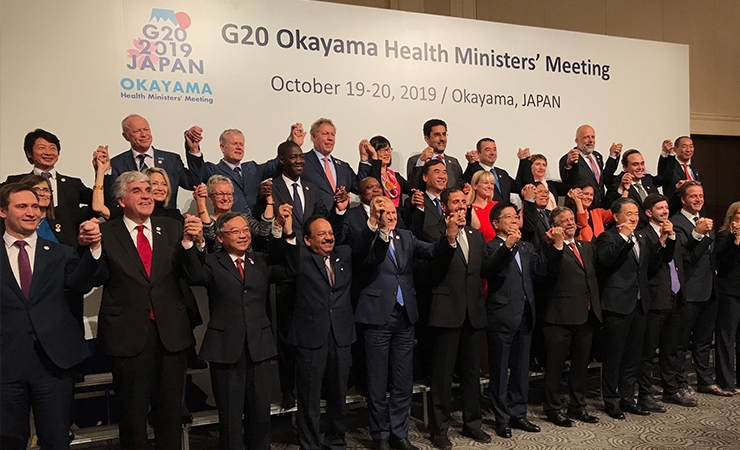
At the weekend, the G20 Health Ministers’ Meeting was held in Okayama, Japan. The Japanese government made the challenge of ageing the focus of their G20 presidency. Although not a natural part of ageing, dementia and ageing walk hand-in-hand. The biggest risk factor for dementia is age. And dementia is among the biggest costs of ageing for health systems right across the globe.
Dementia was on the agenda at both the Finance and the Health Ministers’ meetings. At the Okayama summit, G20 ministers restated in the post-summit Declaration their shared commitment to tackling dementia.
No one wants one of these global summits to end in a fist fight, as has happened. What ends up on a summit agenda is a reflection of a number of factors. Firstly, the host country’s domestic priorities. Secondly, the international salience of an issue; unless there is broad consensus of the issue’s global importance, it is unlikely to make it onto the agenda. Thirdly, that consensus is possible; agreeing a declaration is about leaving contentious issues off the agenda.
What does this tell us about dementia as a health priority? Firstly, and most positively, all governments could agree dementia is a global health challenge. It is at official level that declarations are sewn together and most of the work for the Health Ministers’ Meeting was completed before the summer. It is not a sudden burst of lobbying that puts an issue on the agenda, but rather it is sustained efforts over many years.
Dementia may have burst onto the international agenda when the then UK Prime Minister David Cameron put it on the UK G8’s agenda in 2013. But it is the sustained effort of national and international organizations across academia, industry, civil society and others that have helped maintain and build international attention. Our movement’s success relies on broadening and deepening that effort.
Secondly, it was the commitment of the Japanese government that put dementia on the agenda at this meeting, while anti-microbial resistance was on the agenda for this summit, the 2018 meeting and the 2017 meeting. Our challenge will be to keep this international attention as the summit transitions next year to Saudi Arabia. and the following year to Italy.
Thirdly, the summit reveals the challenge of securing international commitments. Many of the issues that the G20 can help make progress on – whether that on research funding, data sharing, the collection of health system data or implementing some of the important recommendations made on improving care by the OECD last year – have yet to be taken up. We have the attention of the international community, but we need though working together help turn that attention into action.
So, as the Japanese presidency draws to a close, there are reasons to be optimistic. We are on the right trajectory and through our collective collaborative efforts we will defeat dementia.
__________
Lenny Shallcross is Executive Director of the World Dementia Council